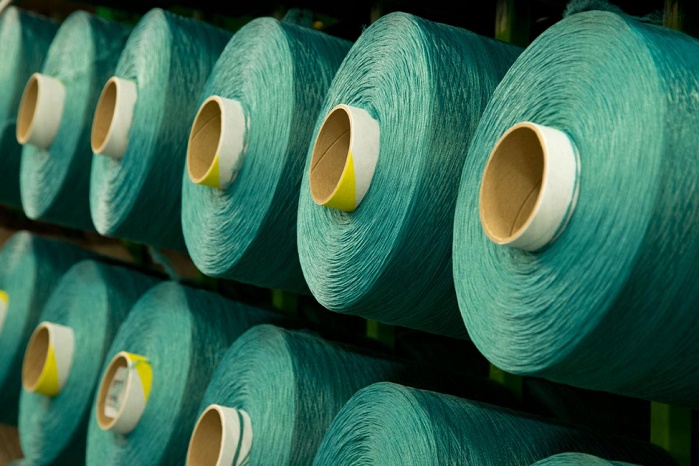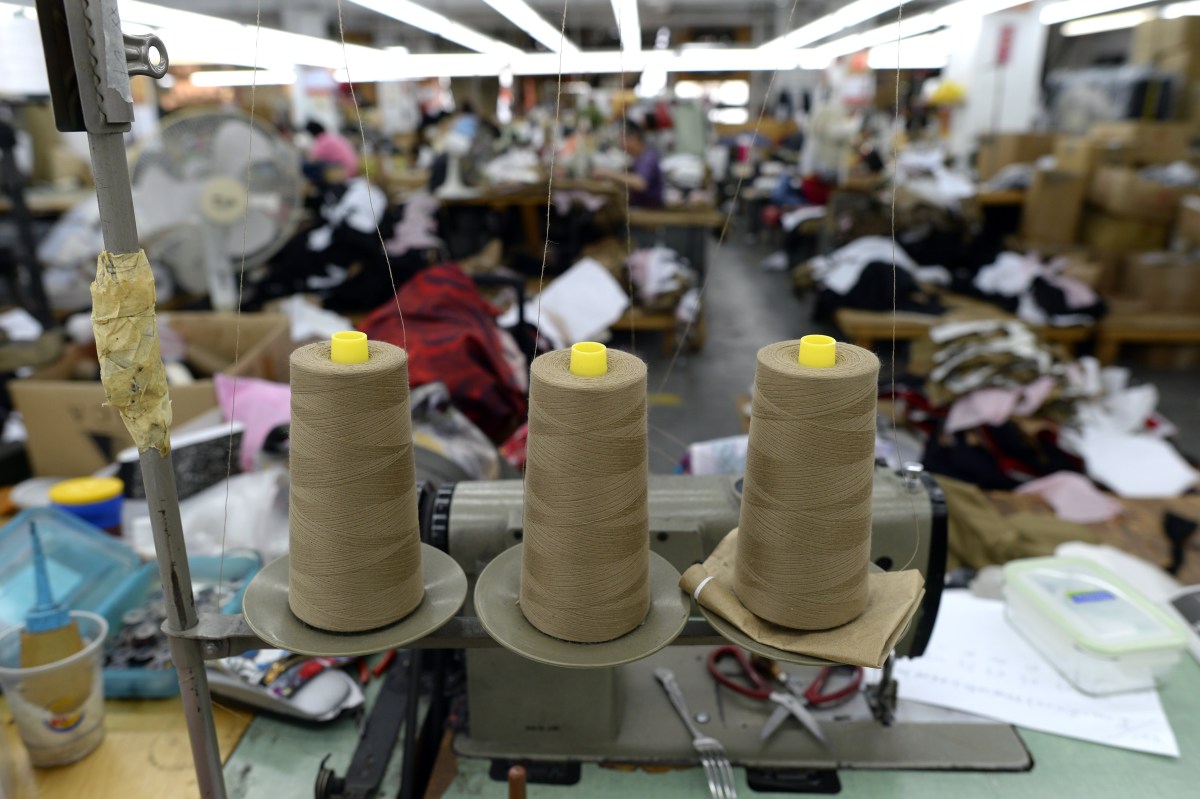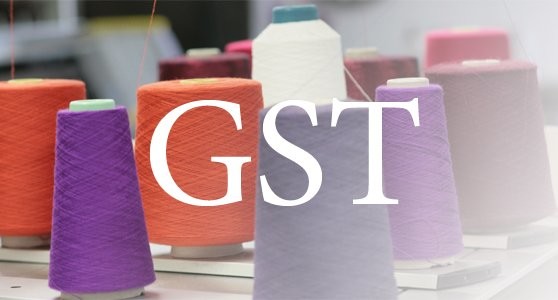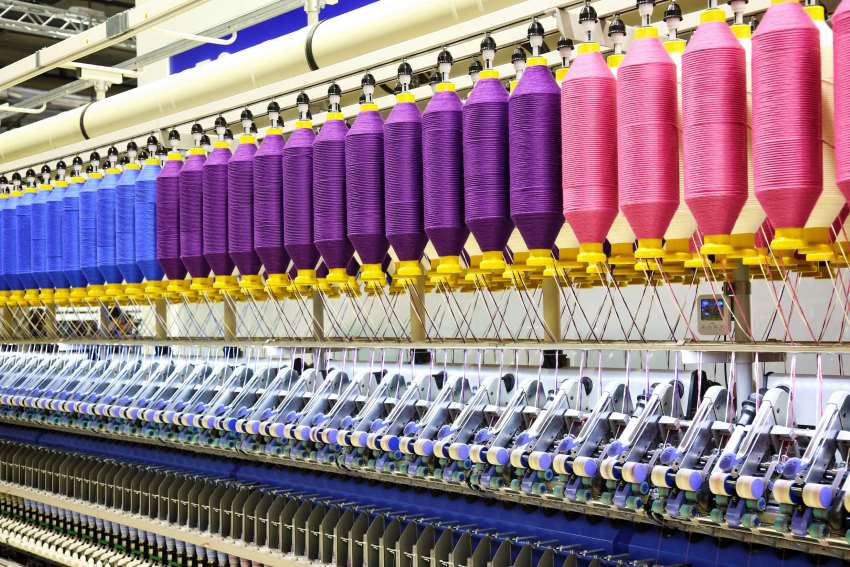FW
Vietnam's textile and apparel (T&A) exports increased by 10 per cent to $22 billion in H1, FY25, as per a report by local daily newspaper Nhan Dan. (People) This strong performance comes amidst ongoing global uncertainties.
Vietnamese enterprises have significantly ramped up production to meet delivery deadlines and maximize tariff advantages. This proactive approach is particularly strategic given the anticipation of potential new US trade measures.
Vietnam’s T&A products are now being exported to 132 countries and territories. Many firms in the sector have already secured orders through September and are actively negotiating contracts for the crucial year-end season, indicating sustained demand.
According to forecasts from authorities, the industry's export revenue could reach between $46 billion and $47 billion in 2025, if the current growth momentum continues.
Fifth high-end label to be placed under judicial administration in Italy due to investigations into labor exploitation within its supply chains, LVMH-owned cashmere brand, Loro Piana will undergo court monitoring for one year, a period that could be shortened if the company aligns its practices with legal requirements.
The investigation into Loro Piana Spa originated in May when Carabinieri police from Milan's labor protection unit arrested a Chinese workshop owner and shut down his factory in Milan's northwestern suburbs. The arrest followed a worker's report of being beaten and injured after demanding €10,000 in unpaid wages. Police discovered the workshop produced Loro Piana-branded cashmere jackets, with 10 Chinese laborers, including five illegal immigrants, forced to work up to 90 hours a week, seven days a week, for just €4 an hour, and slept illegally within the factory premises.
The Court of Milan found that Loro Piana ‘culpably failed’ to adequately oversee its suppliers in pursuit of higher profits. The company had subcontracted its production through two front firms that lacked actual manufacturing capacity, instead funneling work to Chinese-owned workshops in Italy. While the owners of the contracting and subcontracting companies face criminal investigation for exploiting workers and employing undocumented individuals, Loro Piana Spa itself is not under criminal probe.
Prosecutors in the case asserted, the violation of rules among fashion companies in Italy represents a ‘generalized and consolidated manufacturing method.’ As cited by the Court of Milan, past investigations indicate, the complete outsourcing of industrial production processes is aimed exclusively at reducing labor costs with a view to maximizing profits at the lowest possible production cost.
Italy is a global hub for luxury goods manufacturing, with thousands of small producers accounting for 50-55 per cent of worldwide luxury production. Despite a recent accord signed in May between Italy's fashion brands and authorities to combat worker exploitation, the court ruling on Loro Piana stated that this specific production chain continued to operate until now, despite widespread reports of previous similar cases involving brands like Valentino, Dior (also LVMH), Armani, and Alviero Martini. Carabinieri police confirmed inspecting two intermediary companies and three Chinese workshops in the Milan area, identifying 21 workers, including 10 working off the books and seven illegal immigrants.
The digital textile printing landscape, specifically Direct-to-Garment (DTG) and Direct-to-Film (DTF) technologies, is poised for rapid expansion, according to a recent report by global business intelligence firm, Textiles Intelligence. Their 21-page analysis, ‘Digital printing direct to fabrics and garments: developments and growth prospects,’ highlights the transformative impact of these innovations on the industry.
As per this report, digital textile printing offers unparalleled advantages, including virtually unlimited color choices, extensive customization options, and significant flexibility in both design and production. Recent advancements in this segment have made these processes even more efficient. Modern digital textile printing machines are highly versatile, capable of printing on a wide array of fabrics. Crucially, many now eliminate the need for pre-processing and post-processing equipment or specialist operators, making them resource-efficient, cost-effective, and environmentally friendly due to their low operational impact. Industry players manufacturing these machines include Brother, ColorJet, EFI Reggiani, Epson, Kornit Digital, Mimaki, and Sawgrass.
Both DTG and DTF are profoundly impacting the apparel sector. DTG printing uses inkjet technology to apply high-quality, full-color designs directly onto garments. In contrast, DTF printing utilizes a polyester film to transfer bold and durable designs onto fabric. These newer digital printing methods are ideally suited for creating on-demand, up-to-the-minute designs. This makes them particularly valuable for e-commerce platforms, which thrive on rapid turnaround times and diverse product offerings, and the fast fashion sector, which demands quick design iterations and frequent product launches. DTG and DTF reduce lead times and streamline production processes to meet these needs, having been developed specifically in response to the expanding requirements of these dynamic segments.
Particularly, DTF printing has emerged as a major phenomenon. As per estimates, approximately 7 billion items were produced worldwide using DTF printing in 2024, and a remarkable 50 per cent of all T-shirts produced globally are now decorated using this technology. This explosive growth has been significantly driven by major investments in China. Singapore-headquartered online ultra-fast fashion retailer, Shein is a pioneer in DTF and has developed two in-house DTF printing methods: Digital Thermal Transfer Printing and Cool Transfer Denim Printing. These methods are touted for their low environmental impact, with Cool Transfer Denim Printing notably consuming 70 per cent less water than conventional denim washing methods for wash effects.
An innovative fashion tech startup leveraging artificial intelligence to facilitate on-demand clothing production for brands and suppliers, MannyAI is set to launch its new AI tool, Seamstream, on July 17. Seamstream promises to revolutionize apparel manufacturing by instantly generating Bills of Materials (BOM) and Operation Breakdowns (OB), significantly streamlining price alignment between factories and brands.
To function as a First-Pass Cost Estimator powered by AI, Seamstream will calculate a detailed, bottom-up BOM, encompassing all components such as labels, trims, interfacing, fabrics, and lining. Additionally, it will provide an operation breakdown, which estimates the Standard Minute Value (SMV) for each construction step, tailored to the specific garment type. This will help drastically reduce the negotiation time between suppliers and brands by providing a realistic price range in mere seconds. Initially, Seamstream will support shirts, joggers, sweatshirts, and hoodies, with plans to add more categories based on partner demand.
In the near future, MannyAI aims to enhance Seamstream further, allowing factories to list their available machinery, thereby tailoring construction sequences to their actual production line setups. Factories will also be able to input their own trims, fabrics, and prices, ensuring costing accurately reflects real-time stock availability.
MannyAI's proprietary engine, which underpins Seamstream, boasts a robust database of over 11,000 items. It expertly combines specialized knowledge with image-based reasoning to identify intricate construction details from uploaded photographs and tech packs.
This AI-native solution offers a quicker, more user-friendly alternative to traditional methods like GSD (General Sewing Data), which, while used by large factories, often involves lengthy onboarding processes, requires video analysis, and carries high license fees. Seamstream is designed to be accessible to a wide range of manufacturers, from microfactories to multinational corporations.
Seamstream is the first in a suite of solutions developed by MannyAI, all aimed at helping the fashion supply chain adapt to customer-driven demand manufacturing. MannyAI envisions becoming a ‘co-pilot’ for teams involved in sourcing, purchasing, and manufacturing, starting with the critical and time-sensitive task of costing.
The tool will enable factories that once relied on experienced industrial engineers to manually calculate costs for large, standardized orders to process hundreds of unique variations with shrinking expert resources, states Shruti Grover, CEO, Seamstream. "
Marks & Spencer (M&S) has entered into its first-ever international fashion wholesale partnership with Australia’s premium department store, David Jones.
Through this partnership M&S will introduce its best-selling Womenswear, Menswear, and Lingerie collections on David Jones's online channels and 24 physical stores across Australia, including prominent flagship locations in Sydney and Melbourne. This move directly stems from M&S’s revitalized international strategy, unveiled last year, which prioritizes long-term, profitable growth through omnichannel expansion, franchise collaborations, and wholesale opportunities.
With David Jones serving over five million customers annually across Australia, this partnership underscores shared values of quality, innovation, and trust. It also reflects M&S’s strong confidence in the Australian market, where brand recognition already exceeds 50% of the population.
Mark Lemming, Managing Director-International, states, Australia presents a compelling market for the brand while with its heritage and reach. David Jones proves as the perfect partner for bringing the brand’s magic to a new audience, he adds.
Bridget Veals, Executive General Manager-Womenswear, David Jones notes, the collaboration aligns with their vision to offer premium everyday essentials backed by strong brand equity. David Jones emerges as the exclusive home for M&S fashion in Australia, she adds
What truly distinguishes this expansion is M&S's methodical approach to global growth. By investing in senior international leadership, including new appointments like an International Partnerships Director and Commercial Director, M&S is establishing serious infrastructure for sustainable growth beyond the UK. In an increasingly competitive global retail environment, this partnership signals a new chapter in British retail exporting—one driven by data, brand trust, and precise execution. If successful, this Australian debut could serve as a blueprint for future international fashion expansions, further solidifying M&S’s position as a leading global brand.
UK's leading marketplace for home, gift, and fashion, Autumn Fair held a nationwide competition to revitalize independent retail businesses across the UK.
Held in partnership with Savethehighstreet.org, this nationwide competition announced the two winners of its first-ever Retail Makeover Mission.
After reviewing hundreds of applications, OSO Fashion Boutique in Salisbury and Taba Naba in Felixstowe were selected to receive comprehensive retail transformations. These makeovers are specifically designed to unlock their growth potential and prepare them for the crucial autumn/winter trading season and beyond.
Highlighting the growth mindset, community focus and readiness for change of the winners, Soraya Gadelrab, Event Director, Autumn Fair, emphasized, going beyond transforming just two stores; this initiative demonstrates the vast possibilities when independent retailers are equipped with the necessary tools, expertise, and visibility to thrive. The Retail Makeover Mission attracted 225 entries, each underscoring the vital role these businesses play in local economies and high streets.
Award-winning fashion and jewelry store in Salisbury, OSO Fashion Boutique impressed judges with its dedication to customer service, meticulously curated collections, and a clear vision for expansion. Katie Gibbs, Owner, opined, this gives the brand an opportunity to modernize OSO's systems while retaining its beloved charm, aiming for a more connected and efficient future for her team, customers, and the Salisbury community.
A charming gift shop in Felixstowe, Taba Naba was awarded for its passion for creating memorable customer experiences and its strong community ties. Michaela Sawyer, Owner eagerly anticipates gaining expert advice to develop a more focused and sustainable business plan, ultimately enhancing their customer experience and transforming both the shop's appearance and its operational efficiency.
The transformation work for both businesses will commence this July, strategically timed to optimize their performance for the pivotal autumn/winter retail period. Along with its results, the entire process will be meticulously documented and shared to provide valuable insights and inspiration for the broader independent retail sector.
This initiative seeks to create a blueprint for sustainable growth and innovation across the independent retail landscape. Lessons learned, ranging from upgrading legacy systems and improving inventory management to enhancing digital integration and customer experience, will be shared with the wider Savethehighstreet.org and Autumn Fair communities. Alex Schlagman, Founding Partner, Savethehighstreet.org, underscored the positive ripple effect of investing in independent retailers, strengthening communities, fostering local economic activity, and inspiring a new era of retail innovation.
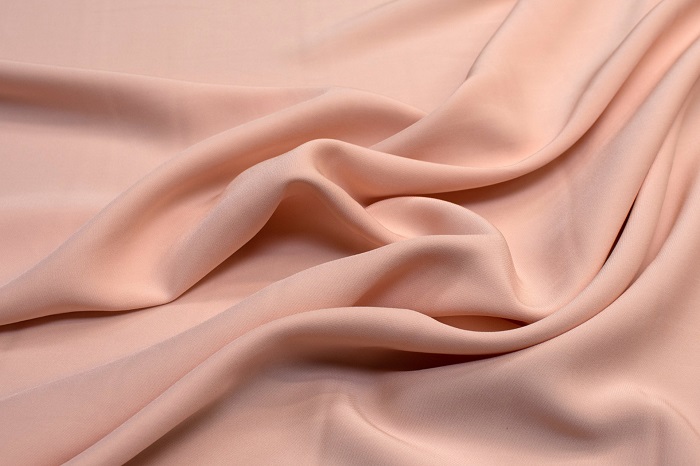
A premium stretch fiber developed by Asahi Kasei, Roica is at the forefront of the textile industry's shift towards more sustainable and high-performance materials. Known for its exceptional elasticity, comfort, and versatile applications, Roica comes in various innovative forms, including Roica V550, a degradable elastane that breaks down without releasing harmful substances, and Roica EF, a recycled stretch fiber made from pre-consumer materials. These advanced fibers are proving instrumental in helping textile manufacturers achieve new benchmarks in environmental responsibility and product functionality, as clearly showcased at the recent Milano Unica trade fair.
Pioneering innovations from leading exhibitors
Brugnoli unveiled its revolutionary explosive technology, a game-changer for natural fibers. Their new naturally explosive fabric delivers a ‘second skin’ effect, offering remarkable muscle support and freedom of movement. This breakthrough, ideal for both sportswear and ready-to-wear, incorporates Tencel Modal with Micro technology by Lenzing AG and Roica Colour Perfect family by Asahi Kasei, ensuring vivid colors and reduced transparency. Brugnoli also presented a high-tech version, Explosive Amni V550 by Brugnoli, featuring polyamide with enhanced biodegradability and degradable Roica V550.
A leader in premium stretch lace, Iluna Group introduced a visionary collection for prêt-à-porter and beachwear that redefines lace through performance, creativity, and responsible innovation. Central to their collection is Roica EF, the recycled stretch fiber, offering exceptional comfort and elasticity. Combined with Q-Nova and Rencycle recycled polyamides, the collection excels in both style and quality.
InnovaFabrics showcased its commitment to sustainability with the outstanding Residual Free (RF) line and high-performance fabrics crafted with Roica V550. Developed using Sensil Biocare and Roica V550, the RF line aims to significantly reduce environmental impact while providing excellent performance, elasticity, and comfort. Key fabrics in this line include I love RF, Lyon RF, and Paris Special.

Making its debut at Milano Unica, InterJersey Milano presented a fabric selection reflecting its core values: sartorial care, technical innovation, and environmental responsibility. At the heart of their collection are three key fabrics developed with Roica V550 for its reliable performance and responsible material profile. Venere blends microfiber softness with a sophisticated aesthetic, ideal for fitted garments. A lightweight and skin-friendly fabric for underwear, Bio Nature combines Roica V550 and Amni Soul Eco offering a practical solution to reduce end-of-life impact.
Known for circular knitted fabrics, Maglificio Maggia introduced two innovative textiles featuring Tencel Modal and Roica V550. Their Simple Jersey (51150) is a luxurious blend of cashmere and Tencel Modal, enhanced with Roica V550 for high-performance stretch. An Italian textile manufacturer with over 70 years of expertise in circular knitted fabrics, Maglificio Ripa continues to blend artisanal craftsmanship with innovation. Their collections often feature Roica, the premium stretch fiber which enhances comfort and fit across diverse applications, including sportswear, fashion, swimwear, and intimates.
PennSolutions unveiled technical fabrics designed for high-performance sports suits. Their Art.13346 offers customizable 3D structures to reduce air resistance. They also introduced highly engineered fabrics using recycled Reco Nylon and degradable Roica V550 featuring customizable all-over patterns with alternating 3D zones for grip and lighter areas for breathability.

Lastly, family-owned company, Tessitura Colombo Antonio showcased its enduring tradition and passion for fine textiles. Specializing in lace and textiles for lingerie and women’s fashion, they seamlessly merge artisanal craftsmanship with state-of-the-art machinery and a strong commitment to sustainability.
Future rooted in sustainable innnovation
Milano Unica truly demonstrated that the future of textiles is rooted in sustainable innovation and high-performance capabilities, with companies leveraging advanced fibers like Roica to create products that are both environmentally conscious and exceptionally functional.
Valued at $1.3 billion in 2024, the global Artificial Intelligence (AI) in Fashion Market is set to expand at a CAGR of 22.8 per cent from 2025-33 to reach a value of $8.2 billion by 2033.
AI is rapidly transforming the fashion industry across its entire value chain, from design and manufacturing to marketing and sales. This revolution is driven by the integration of advanced technologies such as machine learning, computer vision, and predictive analytics. Fashion brands are leveraging AI to deliver highly personalized shopping experiences, accurately forecast demand, predict upcoming trends, and achieve more efficient inventory management. Retailers are also adopting AI-powered tools like chatbots, virtual assistants, and recommendation engines to enhance customer engagement and streamline operational processes.
The increasing prominence of e-commerce and digital platforms makes AI adoption crucial for competitive differentiation within the fashion sector. Furthermore, sustainability is emerging as a key driver for AI integration, as the technology aids in reducing waste and optimizing resource utilization. Geographically, North America currently leads the market, while the Asia-Pacific region is showing strong growth potential, primarily due to its rapidly expanding digital consumer base.
After operating as Textile Recyclers Australia for more than a decade, the company has rebranded itself to Textile Recyclers Group (TRG). This strategic move reflects TRG's expanding global reach, its unwavering commitment to innovation, and a growing network of partners dedicated to transforming textile waste.
This milestone signifies a crucial evolution in TRG’s mission to give textiles a second life and actively shape the future of circular fashion and textile reuse. To date, TRG has successfully diverted over 1 million kg of textiles from landfills and serves more than 200 clients across various industries, showcasing its significant environmental impact.
The rebrand also provides TRG with an opportunity to reaffirm its core mission and guiding principles: viewing textiles as a valuable resource rather than mere waste. The group emphasizes measurable, transparent systems that inform design, logistics, and analysis, reinforcing its commitment to sustainability and harm reduction. It champions scalable, practical innovations that align with Life Cycle Assessment (LCA) standards, ensuring a holistic approach to environmental responsibility.
As Textile Recyclers Group, the company is now strategically positioned to scale its technical capabilities, deepen client partnerships, and accelerate product development for broader commercial applications. The rebrand underscores the essential role that innovation and technology will play in addressing the global textile waste crisis and advancing a truly circular economy.
With established facilities in Sydney and Melbourne, TRG possesses a robust platform that enables it to deliver highly flexible solutions for keeping textiles and apparel out of landfills.
Currently, TRG provides services to customers across Australia and New Zealand, with plans to expand its scope to offer global solutions.
Under the new Textile Recyclers Group umbrella, the company encompasses specialized divisions. Its division, Project Down Under focuses specifically on the recycling of underwear and undergarments. The Composable Plastics division provides innovative, biodegradable packaging solutions tailored for the fashion and textile sectors. Lastly, Textile Recycling Technologies serves as TRG's dedicated research and development division, constantly advancing innovation for true textile circularity. These specialized areas are unified by TRG's four core values: environment, textiles, circularity, and technology.
Leading international fashion brand, Mango has appointed Helena Helmersson, former CEO, H&M Group, as a new independent member of its Board of Directors. This strategic move aligns with the brand’s international best practices and reinforces its commitment to a professionalized management model.
With over 20 years of extensive international experience in the fashion industry, Helmersson has served as the Chief Executive Officer of the H&M Group from 2020 to 2024. In this role, she spearheaded sustainability, production, and global operations. She is currently engaged as the Chairwoman, Circulose and Board Member, On Holding AG and Quizrr. Her global background and experience with a brand present in over 75 markets offer a crucial strategic perspective to Mango’s governing body.
Toni Ruiz, Chairman and CEO, Mango, avers, Helmersson’s vast international perspective and extensive experience in the fashion industry will undoubtedly propel the brand to new heights, Her expertise and visionary approach are invaluable assets that will enrich our leadership team and drive our global ambitions forward, she remarks.
Expressing her joy at the announcement, Helmersson states, Mango is pursuing a very ambitious plan, developing the brand and assortment, and bringing it to more customers around the world. At the same time, they are part of leading the sustainability practices in the industry,
With this addition, the Mango (Mango MNG) Board of Directors now comprises Toni Ruiz Chairman and CEO; Jonathan Andic, Vice Chairman, Daniel López, and Margarita Salvans, Executive Directors. The six independent directors include Jordi Canals, Jorge Lucaya, Jordi Constans, Marc Puig, Manel Adell, and now Helena Helmersson. Eugenia Jover serves as the Non-Director Secretary of the Board.
This strategic strengthening of the Board is a key part of Mango’s 2024–2026 4E Strategic Plan. The plan focuses on reinforcing the brand's differentiated value proposition, its commitment to innovation and sustainability, and driving significant sales expansion globally.


